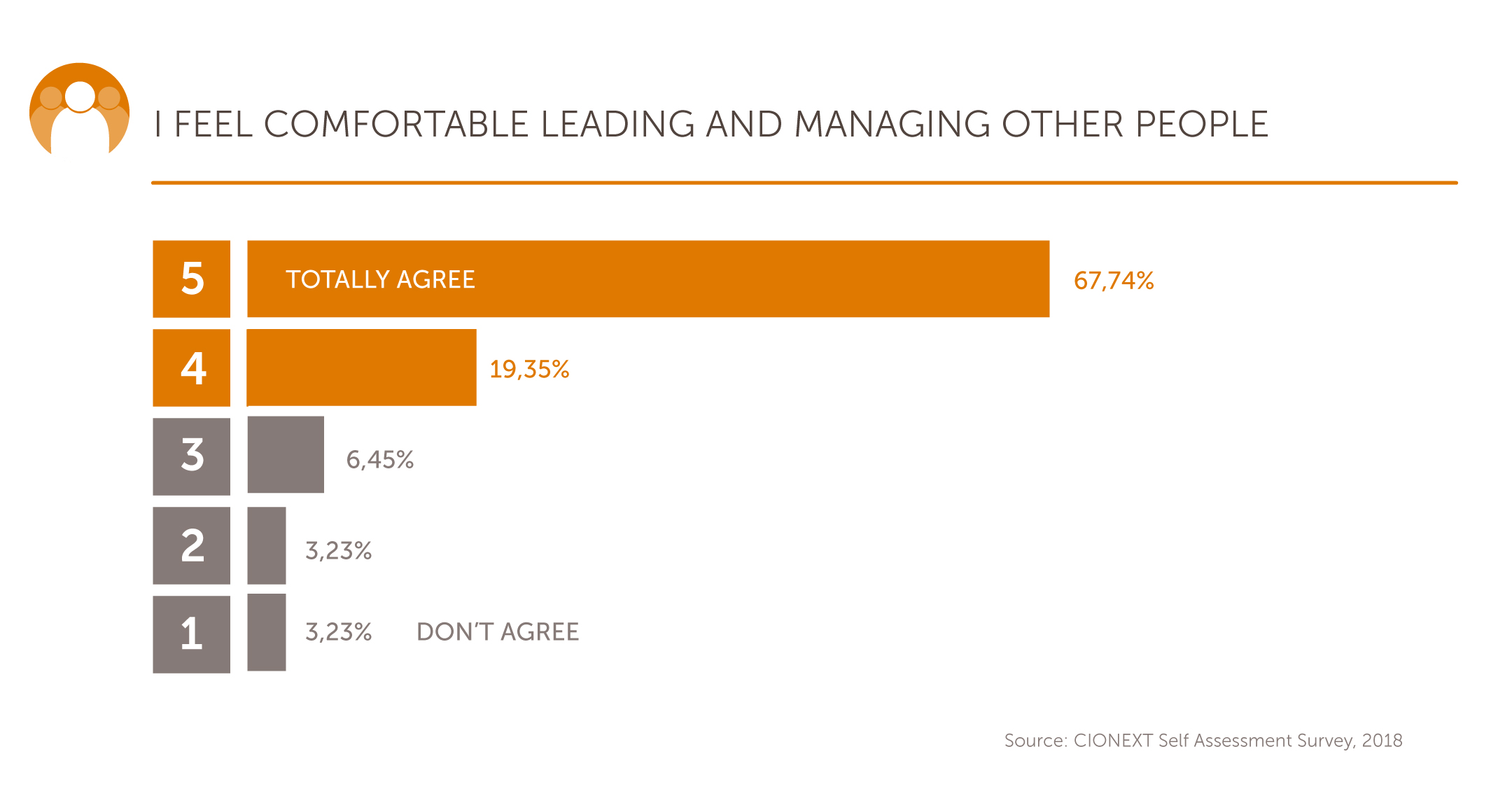
Another finding from the questionnaire leading up to the CIONEXT event at Deloitte University on June 11th, we found that the CIO clearly sees his individual competences as a very strong asset.
The responses to the questionnaire highlighted some clear trends. As shown in the graphs below, over 85% of the respondents (totally) agrees with the fact they are comfortable leading and managing other people.
On the comfortability on the professional and personal well-being, almost 9 out of 10 CIOs (totally) agrees with the statement.
However, the individual personality is not the only factor influencing the CIO success. CIOs are not limited in their ability to deliver value by their personal attributes or their working styles, but are free to shape their own legacy—and to do so, they must be adaptive in the face of evolving business expectations.
In the Deloitte 2015 global CIO survey “Creating Legacy”, a map for creating the CIO legacy is presented. “Legacy” is defined as how technology leaders deliver lasting value to their organizations. A key finding was that effective CIOs add value in three distinct ways based on the needs of the business:
The Deloitte 2017 global CIO survey “Navigating Legacy” plots the course. The report focuses on how CIOs can chart the journey between pattern types as they look to create their legacy. Does the career path toward value creation depend on a CIO’s inherent personal traits and characteristics? Little correlation between a CIO’s nature and his or her ability to successfully deliver value against a particular set of business needs has been found. There was, though, a high degree of correlation between nurture and CIO success. Fortunately for the CIO, this means that a successful legacy is not bound by inherent nature or personality, but instead can be developed by building capabilities and teams in response to changing business needs.
This article was written by Deloitte's Thomas De Jaeger and Christian Combes.
No Comments Yet
Let us know what you think